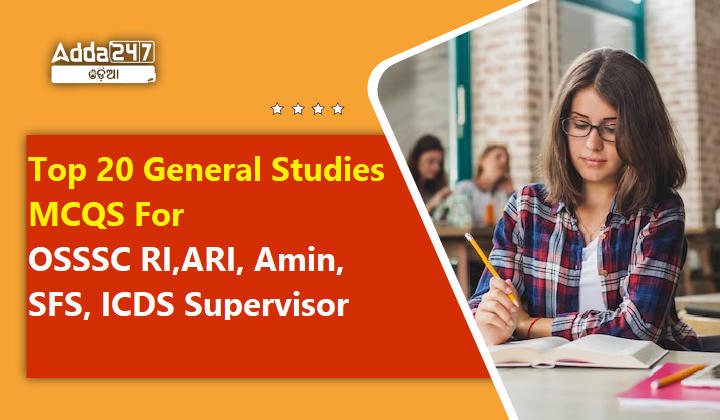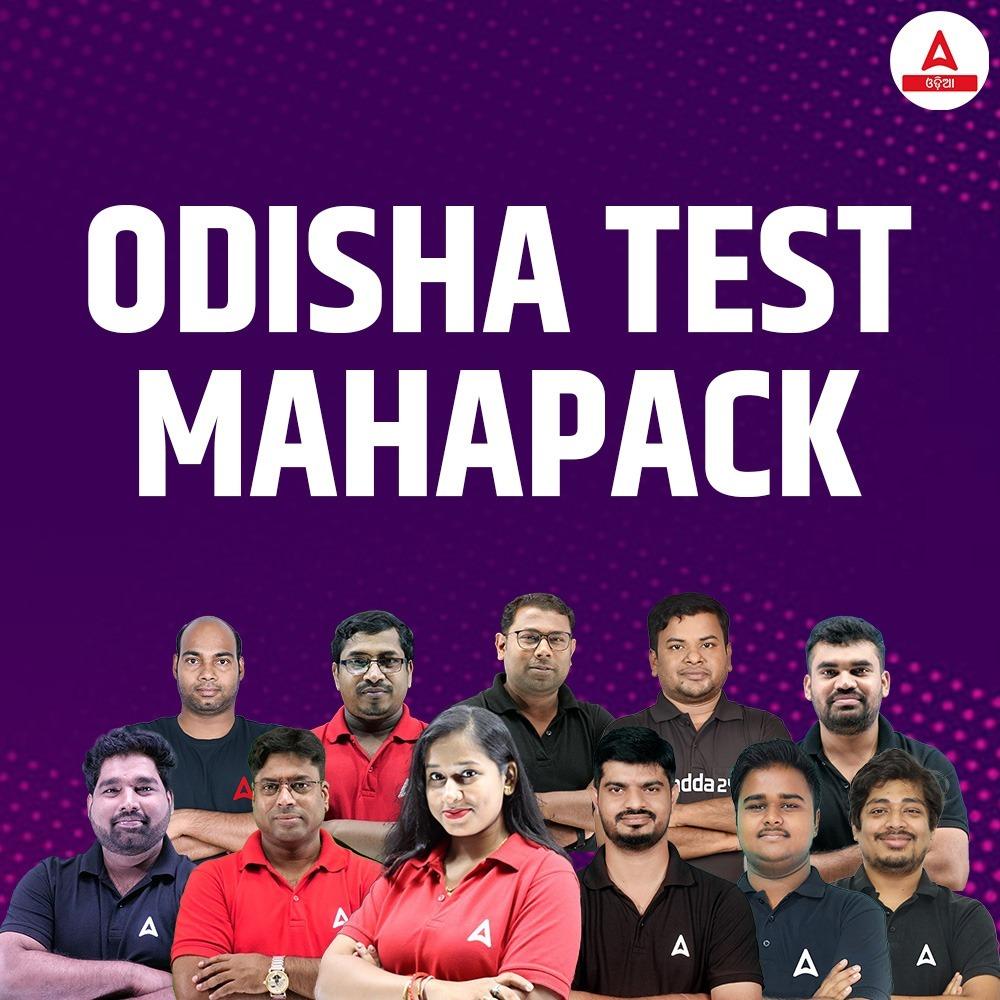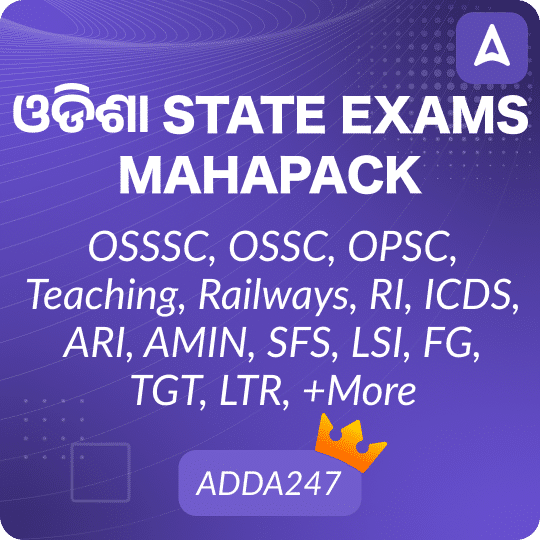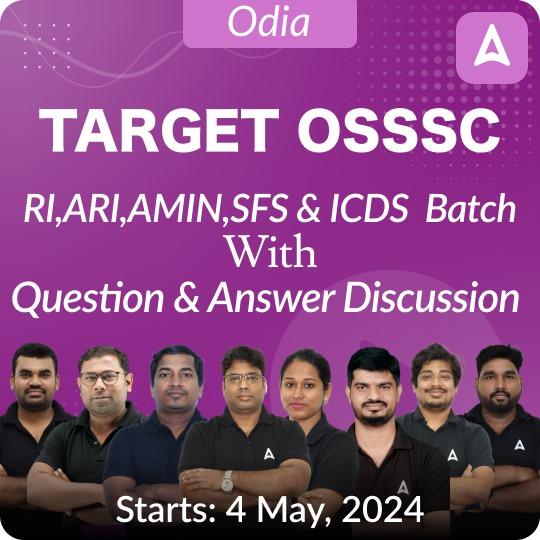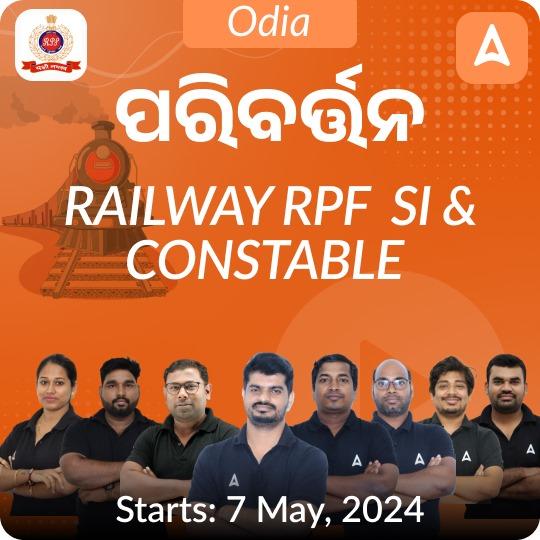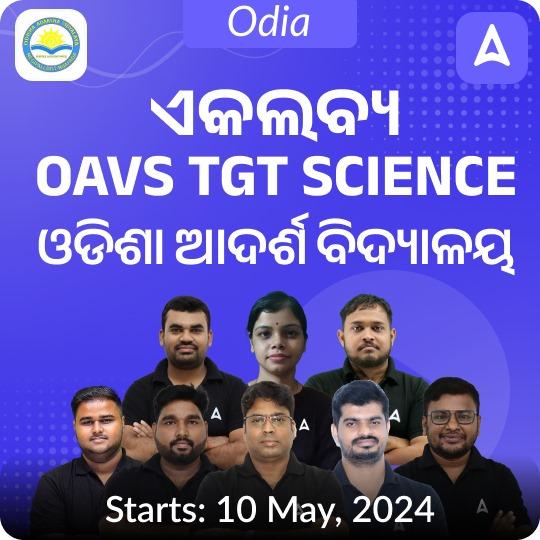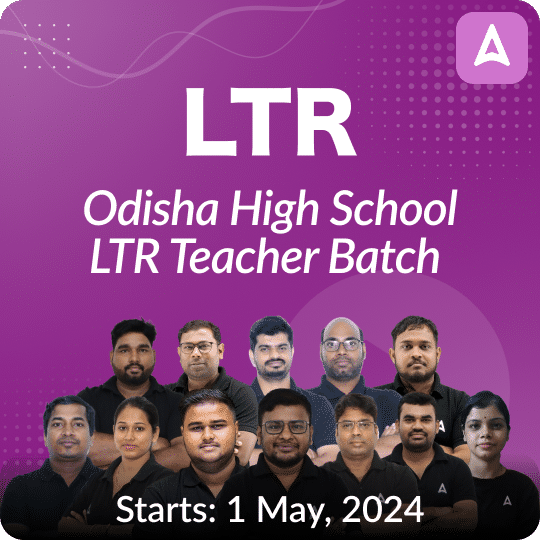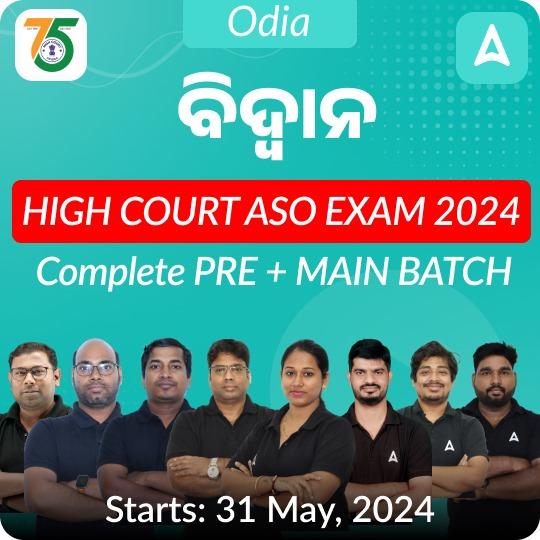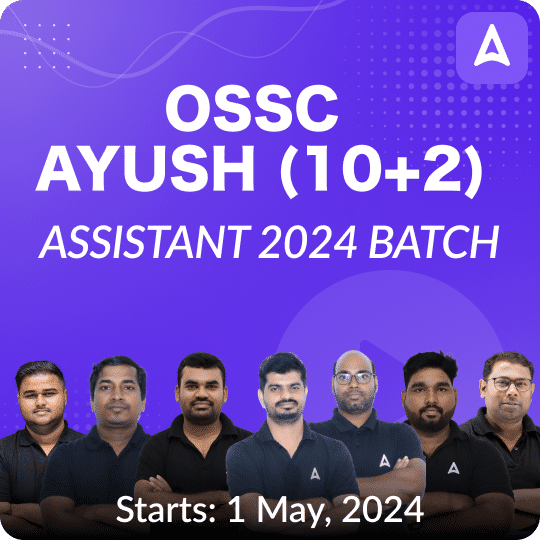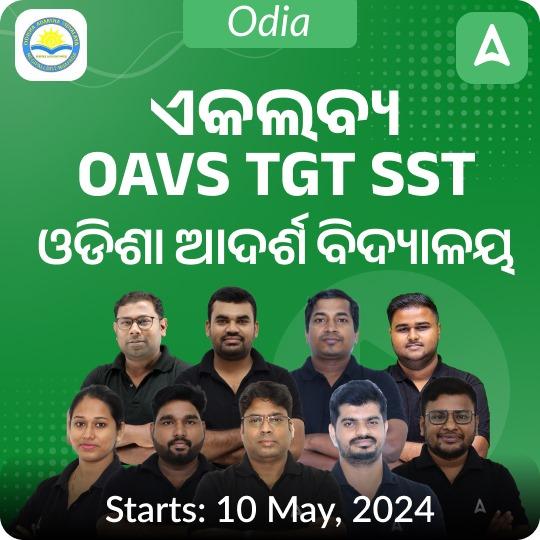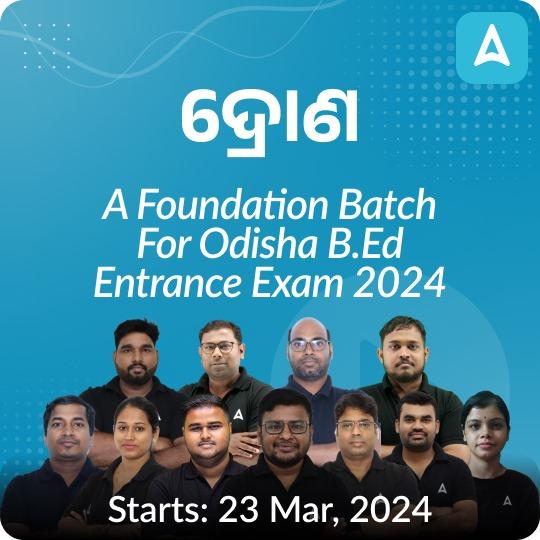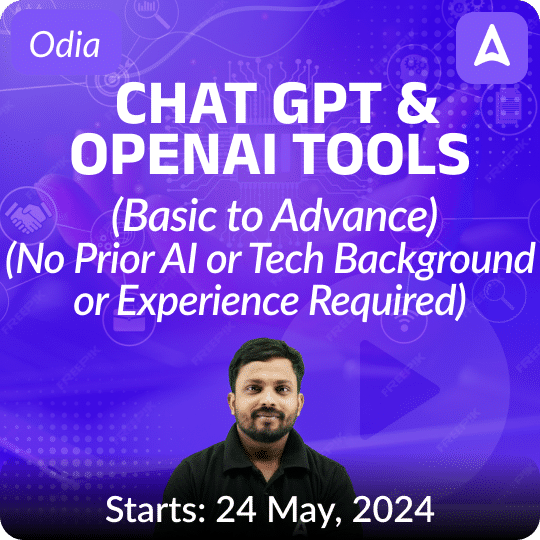Top 20 General Studies MCQS For OSSSC Accountant, DEO 01 April 2024
Q1. Where is the Radio Astronomy Centre of India located?
(a) Trivandrum
(b) Udhagamandalam
(c) Thumba
(d) Trombay
S1. Ans.(b)
Sol. The Radio Astronomy Centre (RAC) is situated near Udhagamandalam (Ooty), Tamil Nadu in the surroundings of the Nilgiri Hills.
It provides stimulating environment for the front line research in radio astronomy and astrophysics with its excellent and highly qualified staff.
Q2. In India, President’srule is the suspension of state government and imposition of direct Union government rule in a state, Under
(a) Article 356
(b) Article 360
(c) Article 352
(d) Article 350
S2. Ans.(a)
Sol. In India, President’srule is the suspension of state government and imposition of direct Union government rule in a state, Under Article 356 of the Constitution of India.
Q4. Most of the ______are formed by sand and soil deposited by rivers and sea waves.
(a) Laterite and lateritic soils
(b) Alluvial soils
(c) Peaty and Marshy soils
(d) Saline and alkaline soils
S4. Ans.(b)
Sol.Alluvium or Alluvial soil is loose clay, silt, sand, or gravel that has been deposited by running water in a stream bed, on a floodplain, in an alluvial fan or beach, or in similar settings. Alluvium is also sometimes called alluvialdeposit
Q5. Which of the following is not true in regard to exchange rate of Indian Rupee?
(a) Mainly, its price is in terms of US Dollar.
(b) It is decided by Reserve Bank of India.
(c) It is published by Reserve Bank of India.
(d) It is decided by market forces
S5. Ans.(b)
Sol.The currency exchange rate depends on economic performance, inflation, interest rate differentials, and capital flows, etc.
It is generally determined by the strength or weakness of the particular economy. Hence, currency exchange fluctuates dynamically. It is not decided by the RBI.
Q7. The Indian Statutory Commission is also known as
(a) Cripps Mission
(b) Constituent Assembly
(c) Simmon Commission
(d) Wavel Commission
S7. Ans.(c)
Sol. The Indian Statutory Commission is also known as Simon Commission.
It was a group of seven Members of Parliament under the chairmanship of Sir John Simon. The commission arrived in British India in 1928.
Q8. In which among the following states, the President’s rule has not been imposed so far
(a) Telangana
(b) Chhattisagadh
(c) Only (a)
(d) Both (a) & (b)
S8. Ans.(d)
Sol. InIndia, President’srule is the suspension of state government and imposition of direct Union government rule in a state, Under Article 356 of the Constitution of India.Chhattisgarh and Telangana are the only states where the President’s rule has not been imposed so far.
Q9. Article 19(d) of the Constitution of India deals with the ______.
(a) Right to freedom of speech
(b) Right to assemble peaceably
(c) Right to move freely throughout the territory of India
(d) Right to practice any profession
S9. Ans.(c)
Sol. Article 19(d) of the Constitution of India deals with the Right to move freely throughout the territory of India. Article 19 guarantees six freedoms in the nature of civil rights, which are available only to citizens of India.
Q10. The States of India having common border with Myanmar are
(a) Mizoram, Manipur, Nagaland, Arunachal Pradesh
(b) Mizoram, Tripura, Meghalaya, Assam
(c) Mizoram, Manipur, Tripura, Meghalaya
(d) Assam, Manipur, Tripura, Arunachal Pradesh
S10. Ans.(a)
Sol. Arunachal Pradesh, Nagaland, Manipur and Mizoram share international boundary with Myanmar.
Q11. Aromatic hydrocarbons contain at least _____ benzene like ring in their molecules?
(a) four
(b) three
(c) two
(d) one
S11. Ans.(d)
Sol.Aromatic hydrocarbons are those which contain one or more benzene rings. The name of the class come from the fact that many of them have strong, pungent aromas.
Q12. For what is Radiocarbon dating technique used?
(a) To estimate soil contamination
(b) To estimate the amount of water in fossils
(c) To estimate the age of fossils
(d) To estimate the quality of soil
S12. Ans.(c)
Sol.Radiocarbon dating (also referred to as carbon dating or carbon-14 dating) is a method for determining the age of an object containing organic material by using the properties of radiocarbon, a radioactive isotope of carbon.
Q13. From which of the following are the Fundamental duties adopted?
(a) French Constitution
(b) Indian Constitution
(c) Spanish Constitution
(d) USSR Constitution
S13. Ans.(d)
Sol.Fundamental Duties : Part IVA (Article 51A) Fundamental duties were added by 42nd and 86th Constitutional Amendment acts. As of now there are 11 Fundamental duties. Citizens are morally obligated by the Constitution to perform these duties.
Q14. “Sultan Johor Cup” is associated with ______.
(a) Hockey
(b) Cricket
(c) Football
(d) Golf
S14. Ans.(a)
Sol.The Sultan of Johor Cup is an annual, international under–21 men’s field hockey tournament held in Malaysia.
Q15. Which of the following is an example of Electrically-Erasable Programmable Read-Only Memory?
(a) Flange
(b) Fury
(c) Flash
(d) FRAM
S15. Ans.(c)
Sol.Electrically Erasable Programmable Read-Only Memory (EEPROM) is a stable, non-volatile memory storage system that is used for storing minimal data quantities in computer and electronic systems and devices, such as circuit boards.
Q16. Who developed the idea of Crop rotation?
(a) Lily Thomas
(b) Carrot Cornwick
(c) Cabbage Carlson
(d) Turnip Townsend
S16. Ans.(d)
Sol.Charles Townshend earned his nickname “Turnip Townshend” for his contribution to the development of the use of turnips in crop rotation.
Q17. Halophytes are plants that grow in
(a) Fresh Water
(b) Cold Water
(c) Ponds
(d) Salt Water
S17. Ans.(d)
Sol.A halophyte is a plant that grows in waters of high salinity, coming into contact with saline water through its roots or by salt spray, such as in saline semi-deserts, mangrove swamps, marshes and sloughs and seashores.
Q18. Felis Catus is the scientific name of
(a) Cat
(b) Dog
(c) Mouse
(d) Porcupine
S18. Ans.(a)
Sol.The domestic cat (Felis catus) is a small, typically furry, carnivorous mammal. They are often called house cats when kept as indoor pets or simply cats when there is no need to distinguish them from other felids and felines.
Q19. What is used to prevent freezing of fuel in space crafts?
(a) Benzene
(b) Glycol
(c) Acetylene
(d) Ester
S19. Ans.(b)
Sol.Like ethylene glycol, propylene glycol is able to lower the freezing point of water, and so it is used as aircraft de-icing fluid. Water-propylene glycol mixtures dyed pink to indicate the mixture is relatively nontoxic are sold under the name of RV or marine antifreeze.
Q20. Chanakya was known as ______.
(a) Rajasekhara
(b) Tejasvi
(c) Kautilya
(d) Vatsyayana
S20. Ans.(c)
Sol.Chanakya was an Indian teacher, philosopher, economist, jurist and royal advisor. He is traditionally identified as Kauṭilya or Vishnugupta, who authored the ancient Indian political treatise, the Arthashastra.

